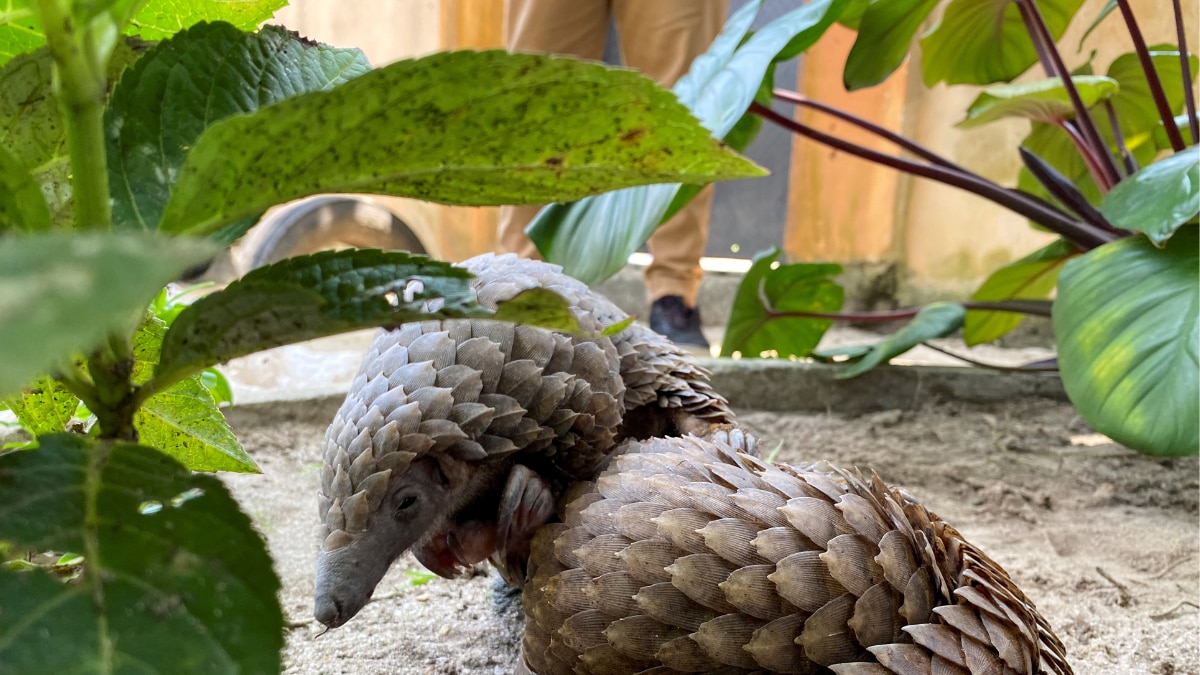[ad_1]
Last Updated: October 23, 2023, 13:54 IST

A rescued pangolin bought off a wildlife seller is seen resting at the Green Finger Garden in Lagos, Nigeria July 29, 2020. Picture taken July 29, 2020. (Reuters File Photo)
Chinese drugmakers, including Beijing Tong Ren Tang and Tianjin Pharmaceutical group, face accusations of using endangered animals in their products
Three publicly traded Chinese drugmakers which count global banks such as UBS and HSBC as investors have used parts of endangered animals as ingredients in their products, an environmental group said.
In a report published Monday, the London-based Environmental Investigation Agency urged global investors in the three firms – Beijing Tong Ren Tang group (600085.SS), Tianjin Pharmaceutical group (600329.SS) and Jilin Aodong Pharmaceutical Group (000623.SZ) – to divest their stakes.
The three companies are among a list of 72 firms the environmental non-profit organisation (NGO) said used body parts of threatened leopards and pangolins as ingredients in at least 88 traditional Chinese medicine (TCM) products.
The group said it focused on the pharmaceutical companies because they are publicly listed, and display products that include leopard or pangolin parts on their websites.
TCM products are known for using a wide variety of animal parts as ingredients, and manufacturers often publicly tout the efficacy of such ingredients and list them in on their product packages.
“It’s particularly disappointing to see so many major banks and financial institutions effectively endorsing this damaging exploitation,” said Avinash Basker, a legal and policy specialist for the NGO, in a media release. “They need to divest from TCM manufacturers using threatened species at the soonest opportunity.”
Beijing Tong Ren Tang and Tianjin Pharmaceutical group did not respond to several emails and calls from Reuters asking for comment. Jilin Aodong Pharmaceutical Group could not be reached for comment. The NGO said 62 financial institutions have invested an unspecified amount in at least one of the three firms, and include UBS (UBSG.S), Deutsche Bank (DBKGn.DE), HSBC Holdings (HSBA.L), Citigroup (C.N) and BlackRock (BLK.N).
Some investors, including Wells Fargo & Co (WFC.N) said they had either sold the funds which were invested in the TCM firms or had sold their shares in the companies, the agency said.
HSBC Global Asset Management Canada and Royal Bank of Canada told the agency their investments in the companies were limited to passive or tracker funds, while UBS told the agency its shareholdings were held on behalf of clients.
The environmental group said Deutsche Bank, HSBC Holdings, Citigroup and BlackRock did not respond to its queries. Citigroup, Deutsche Bank, BlackRock declined to comment when asked by Reuters. The activist group urged the Chinese government to prohibit the use of parts of endangered animals for all commercial purposes in its domestic markets.
China’s National Medical Products Administration did not respond to a Reuters’ request for comment. China’s amended Wildlife Protection law, which came into effect in May, bans trade in most wild animals for consumption as food, but permissions for breeding and utilisation can still be issued for certain circumstances.
(This story has not been edited by News18 staff and is published from a syndicated news agency feed – Reuters)
[ad_2]
Source link





